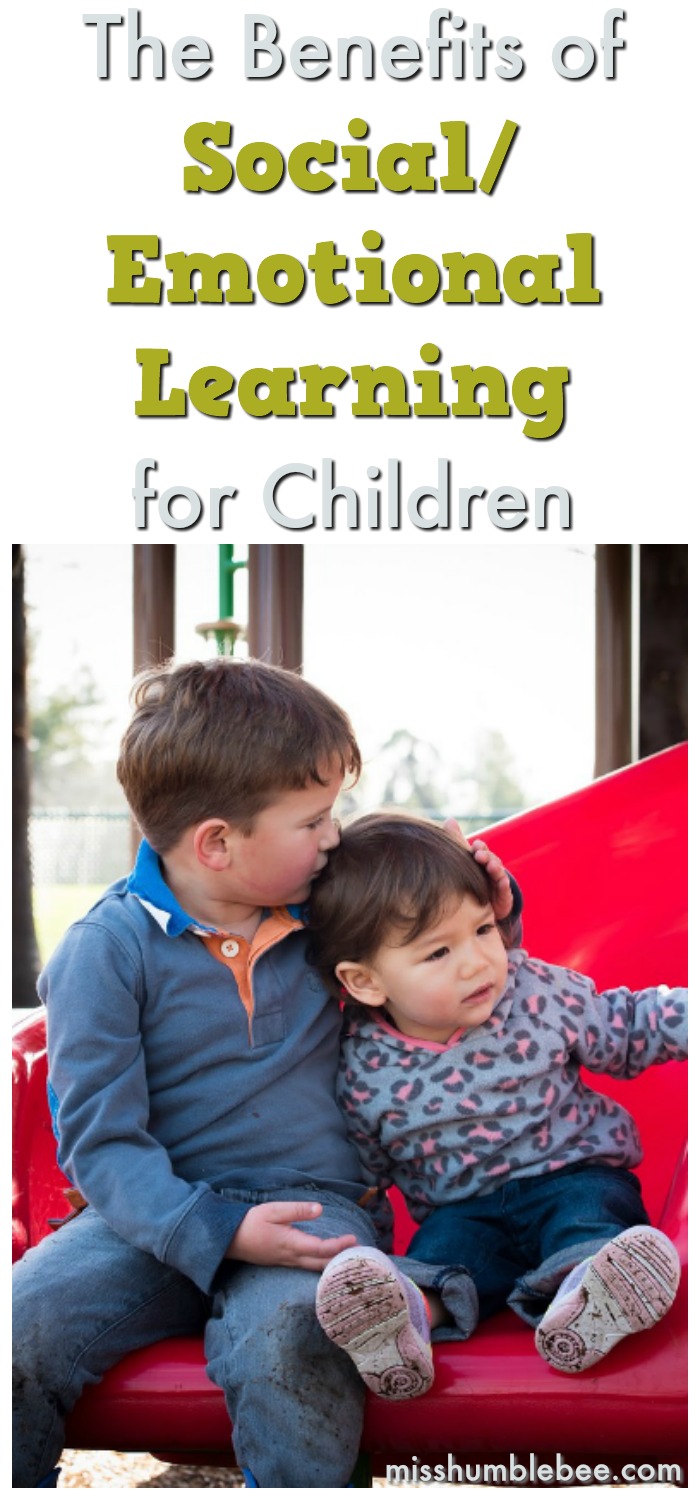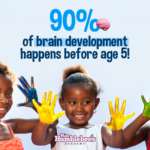Below: The benefits of social/emotional learning for children are many. Here’s why it should be incorporated into both school and everyday life.
Being a kid these days isn’t easy. The pressure to join dozens of activities begins before they’re even walking. They’re expected to master academic skills at younger and younger ages. Bullying, online and in person, continues to be a major problem.
While some of the pressures on children are unnecessary and even harmful, some are simply part of being human. It would make sense then that the adults in children’s lives would take steps to help them learn to cope with the stresses that come along with everyday life. Oftentimes however, parents and teachers focus on academic skills to the exclusion of other types of learning.
 The Benefits of Social/Emotional Learning
The Benefits of Social/Emotional Learning
Recently though, there has been a newfound awareness of the benefits of strategically teaching children social and emotional skills. Social/emotional learning, sometimes called SEL, is joining the curriculum in many schools, and it’s not a moment too soon.
The goal of social/emotional learning is to help children develop necessary skills in a variety of areas. These include responsible decision making, healthy management of emotions, setting and achieving goals, and forming and maintaining positive relationships.
The benefits of SEL extend to many areas of life and will benefit children not only in the short term, but all through their lives. Some of these benefits include:
Decreased emotional distress
As you would expect, children who learn how to manage their emotions spend less time in emotional distress. SEL gives them the tools they need both to understand the emotions they experience and keep those emotions under control.
Fewer problem behaviors
When children learn how to control their emotions, they also learn how to control themselves. A child who can self-regulate is far less likely to act out. Similarly, a child who experiences less emotional distress will be less likely to act out.
More positive social interactions
Children who are taught SEL have more positive attitudes about themselves, their peers, and adults in their lives. They are taught skills to interact and problem solve with each other, leading to stronger and healthier relationships.
Increased Academic Success
While perhaps not the most important reason to institute SEL programs in schools, this may be the strongest argument to convince both parents and school officials to do so. Children who have social/emotional learning also show an increase in test scores and grades. Finding time for SEL in a school day crammed with academics could be the best thing a school decides to do.
Social/emotional learning has many benefits for children, but it’s not simply a matter of fitting it into a 15 minute slot twice a week. Though certain skills must be specifically taught, and dedicated time for SEL is fantastic, the behaviors and skills must be demonstrated and practiced every day throughout the day. That’s why it’s important that both teachers and parents be on board with SEL and work on it with their students and children.
For more information, visit the following:
Why Social and Emotional Learning is Essential for Students
Four Major Benefits of Social/Emotional Learning










